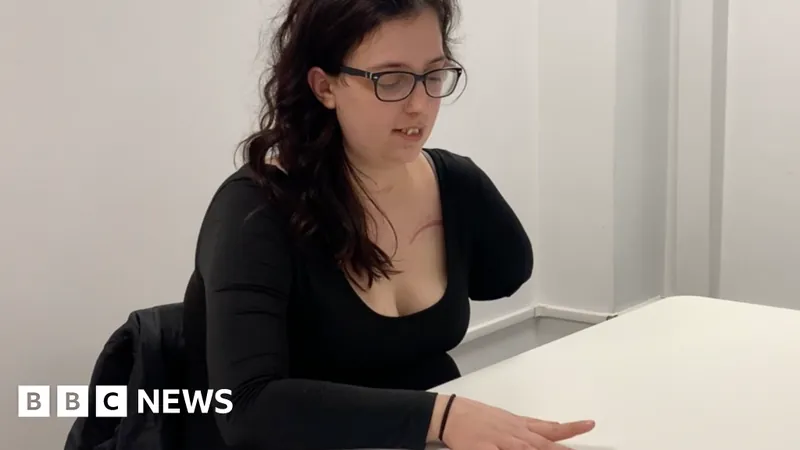
Revolutionary Brain Study Paves the Way for Phantom Limb Pain Treatment
2025-08-21
Author: Mei
New Insights Could Transform Phantom Limb Pain Management
A groundbreaking study from researchers at the universities of Cambridge and Pittsburgh is poised to revolutionize the treatment of phantom limb pain, a phenomenon that affects countless amputees.
The Mystery of Phantom Limb Pain
Phantom limb pain manifests as sensations—often painful or itchy—that appear to come from limbs that no longer exist. Despite amputation, many individuals continue to perceive these feelings as their brains retain an internal map of their bodies.
Surprising Findings on Brain Mapping
In an astonishing revelation, the research demonstrated that the brain's somatosensory cortex, responsible for sensing our body, remained remarkably unchanged following amputation. Over several years, participants showed persistent brain activity in areas that once controlled their missing hands.
Senior author, Professor Tamar Makin, expressed her amazement, stating, 'We assumed the brain maps would shift, but the degree to which the map of the missing limb stayed intact was jaw-dropping.' This challenges the long-held belief that the brain rewires itself after such a significant loss.
Rethinking Treatment Approaches
Current therapies typically aim to restore the brain's representation of the lost limb, but randomized trials have shown limited success. Instead, researchers propose innovative approaches involving surgical methods that incorporate nerves into new muscles or skin, creating a 'new home' for them.
Future of Robotic Limbs and Brain Interfaces
This study not only enhances treatment possibilities for phantom limb pain but also suggests that developing robotic limbs that connect seamlessly to the brain might be more achievable than once believed. Dr. Hunter Schone noted, 'This study is a powerful reminder that even after limb loss, the brain holds on to the body, waiting for us to reconnect.'
A New Era for Restoring Movement and Sensation
With research actively exploring ways to restore movement and sensation to paralyzed limbs or enable amputated limbs to be controlled via brain interfaces, the implications of these findings could lead to significant advancements in medical technology. Dr. Chris Baker commented, 'Our findings provide a real opportunity to develop these technologies now,' heralding a new era in biomedicine.

 Brasil (PT)
Brasil (PT)
 Canada (EN)
Canada (EN)
 Chile (ES)
Chile (ES)
 Česko (CS)
Česko (CS)
 대한민국 (KO)
대한민국 (KO)
 España (ES)
España (ES)
 France (FR)
France (FR)
 Hong Kong (EN)
Hong Kong (EN)
 Italia (IT)
Italia (IT)
 日本 (JA)
日本 (JA)
 Magyarország (HU)
Magyarország (HU)
 Norge (NO)
Norge (NO)
 Polska (PL)
Polska (PL)
 Schweiz (DE)
Schweiz (DE)
 Singapore (EN)
Singapore (EN)
 Sverige (SV)
Sverige (SV)
 Suomi (FI)
Suomi (FI)
 Türkiye (TR)
Türkiye (TR)
 الإمارات العربية المتحدة (AR)
الإمارات العربية المتحدة (AR)